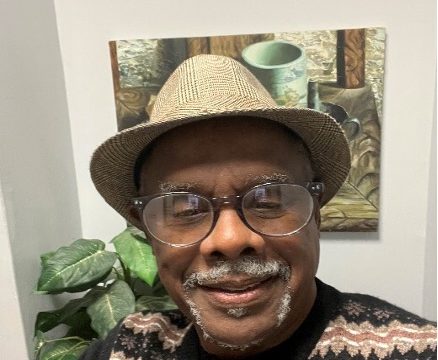
I came across the following quote in the Writers & Poets magazine recently:
“Where words prevail not, violence prevails.”
Please pause and sit on that one momentarily. In case you’re wondering, it’s a phrase from Thomas Kyd, a playwright and contemporary of William Shakespeare.
I then squared that quote against another familiar one, “words have power,”meaning that words have energy and power with the ability to help, motivate, demotivate, heal, harm, humiliate and devastate.
With all that said, I also thought about the title of this narrative and its message about the undeniable power of words within the context of the dangers of silence and how silence is sometimes complicit in the spread of hate and violence.
Now as a person who writes stuff, edgy stuff sometimes, I’ll admit that taken together, those quotes caused a bit of soul searching on my part. And rightfully so.
I thought about divisive words out of the mouths of public figures (no need to name them here) that lead to the waves of violence that’s sweeping our nation today, namely domestic shootings, bombing places of worship, homophobic and race-based physical attacks, let alone hate that frequently pervades social media. I thought about the disturbing patterns of silence in response to those acts of violence.
So readers, allow me to have a “word” with you about “words,” and the damaging effects of silence in response to divisive words. First, “words.”
As a snotty nose kid growing up in a small town in Virginia, in addition to sports, strawberry ice cream and an interest in the opposite sex, I had a fascination with the English language, particularly how on Earth one could piece together 25 letters from the alphabet into a word, paragraph, chapter and eventually into a book.
And here it is decades later, I remember the wise words from my father, “the two most powerful words in the English language are if and but. Remember that.” And I have.
Now there’s tons of research that confirms how the power of words can influence behaviors, build or destroy one’s confidence and alter the choices made in one’s life.
Proof positive is yours truly, a fifth grader at the time who thought he could sing, a notion that was quickly dashed when my music teacher humiliated me in front of the class with words to the effect that I couldn’t sing and pointed me back to my desk.
That humiliating experience ended my interest in ever singing again (even, eh, while driving alone in my car).
Turning now to the undeniable power of silence, the “unsaid,” and its potential harmful implications.
Now c’mon readers, chances are that there were times in your life when you wanted to say something you felt strongly about but wisely chose not to. Was it to a family member, boss, teacher, coworker, bully or some jerk in public? Although what you really wanted to say was warranted and would have been cathartic had you said it, it could have had negative consequences.
____________________________________________________________________
“In the end, we will not remember the words of our enemies, but the silence of our friends.” – Dr. Martin Luther King, Jr.
___________________________________________________
Turning now to the proverbial “silent majority,” an unspecified large group of people or groups who do not express their opinions publicly. Given the pervasiveness of yelling, screaming, name-calling, finger-pointing and vitriol that’s replaced respectful dialogue nowadays, one could conclude that the ranks of the “silent majority” continues to swell.
According to research, the term “silent majority” was popularized by President Richard Nixon in a televised address in 1969, in which he said, “And so tonight—to you, the great silent majority of my fellow Americans—I ask for your support.” He was referring to those Americans who did not join in the large demonstrations against the Vietnam War at the time.
Similar to “silent majorities” these days, Nixon saw this group of Middle Americans as being overshadowed in the media by the more vocal minority. Before that, the phrase was used in the 19th century as a euphemism referring to all the people who have died, and others have used it before and after Nixon to refer to groups of voters in various nations of the world.
Of course, there’s the familiar very relevant quote, “your silence speaks volumes.” So as much as others can hear your words, similarly they can “hear” your silence in the face of evil acts done or said, be they acts of racism, sexism, antisemitism, Islamophobia and bullying. This means that by not speaking out against injustice, you may be perceived of as actually condoning it. Know that by not talking (or writing) about evil can make it easier for it to occur and recur.
So as we bring this narrative to a close, ponder each of the quotes you’ve read – and maybe highlighted – thus far and leave by reflecting on the following one:
“First they came for the Socialists, and I did not speak out because I was not a Socialist. Then they came for the Trade Unionists, and I did not speak out because I was not a Trade Unionist.Then they came for the Jews, and I did not speak out because I was not a Jew.Then they came for me and there was no one left to speak for me.” — Martin Niemöller
© Terry Howard is an award-winning trainer, writer, and storyteller. He is a contributing writer with the Chattanooga News Chronicle, The American Diversity Report, The Douglas County Sentinel, Blackmarket.com, co-founder of the “26 Tiny Paint Brushes” writers’ guild, recipient of the 2019 Dr. Martin Luther King, Jr. Leadership Award, and third place winner of the 2022 Georgia Press Award.


